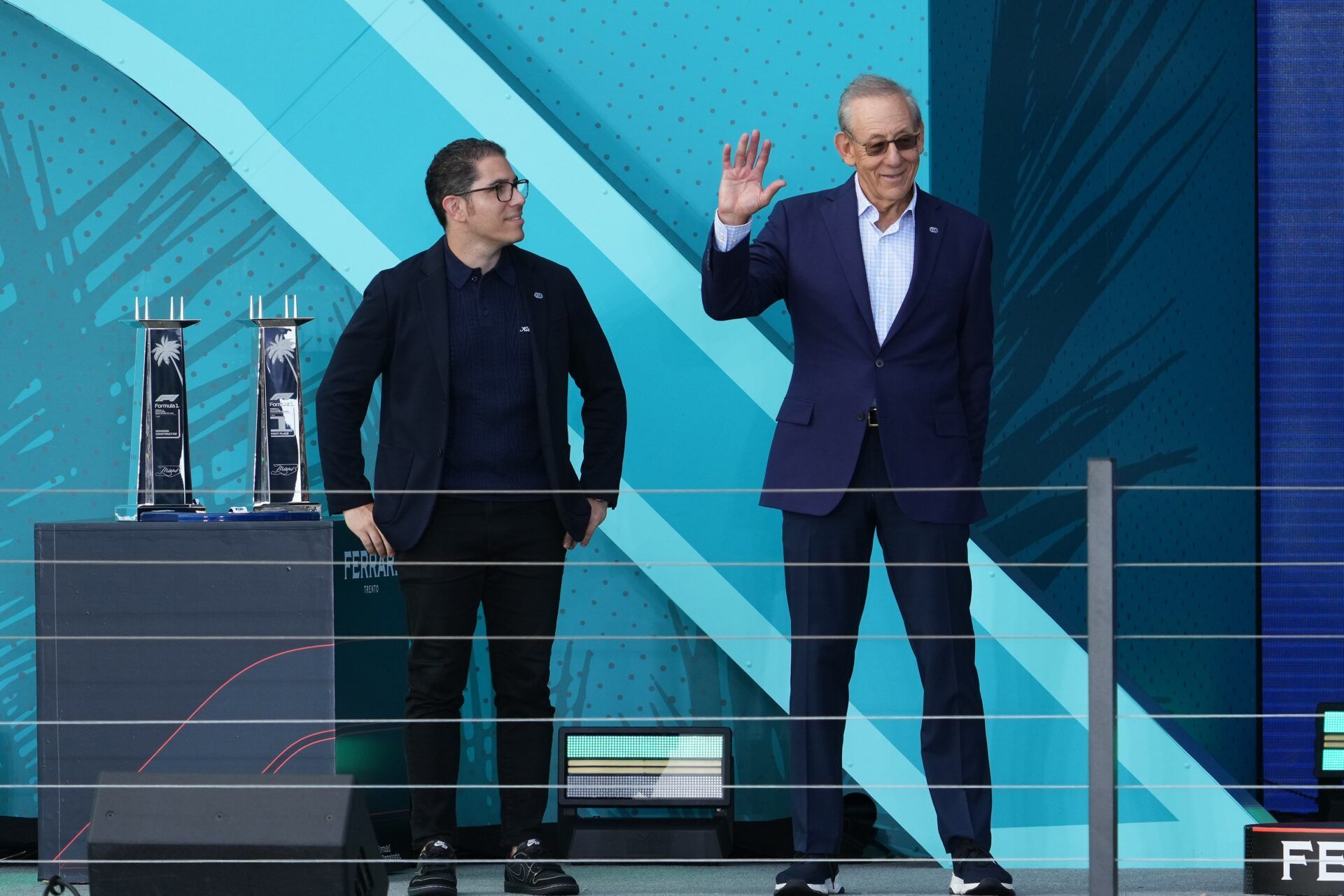USA Today’s report Wednesday that Stephen Ross declined a record-shattering offer to sell the Miami Dolphins, the surrounding property, and the Formula One race that returns to South Florida this weekend should come as no surprise.
Why sell something (even at an 11-figure asking price) that has taken him more than a decade to fix — and has grown 10x in value since he bought it 15 years ago?
Why Stephen Ross Won’t Sell Miami Dolphins
This weekend’s race will shine a global light on what those of us locally have known for some time: Ross has transformed Miami’s once-dilapidated pro football stadium — and the 160 acres that surround it — into a one-of-one sports complex that absolutely prints money.
Beyond the F1 race and Dolphins games, the property hosts the Miami Hurricanes, massive concerts and music festivals, and the Miami (tennis) Open.
Assuming USA Today’s reporting — that Ross turned down a $10 billion offer to buy it all — is accurate, then his net worth far exceeds Forbes’ most recent estimate ($10.1 billion, a figure that includes his massive real estate empire).
That reported sales price would have obliterated the record for highest-priced transaction in pro sports history.
It’s taken more than a billion dollars of investment — not to mention courage and vision — to overhaul the Miami Gardens property.
But transforming the Dolphins’ football culture has been perhaps an even heavier lift. While Ross has yet to win a playoff game (let alone a Super Bowl) in his 15 years as team owner, the team’s health and outlook have never been better in his tenure.
The Dolphins are one of just a handful of NFL teams to post winning seasons in each of the last four seasons, they have a top-10 quarterback-coach combination in Tua Tagovailoa and Mike McDaniel, and had an averaged announced home attendance in 2023 that exceeded Hard Rock Stadium’s capacity.
Ross Already No. 1
What’s more, the NFLPA last month named the Dolphins the NFL’s No. 1 franchise, and Ross the league’s No. 1 owner, based on player voting. He’s helped make the Dolphins a destination franchise.
“Multiple agents and players, even in the free agency process for the pros, have mentioned being the No. 1 in the NFLPA rankings, about being No. 1 in everything,” Dolphins GM Chris Grier said last week. “And that’s been brought up multiple times just from people that are paying attention to what we’re doing.”
Ross, who turns 84 next week, wants the franchise to be the legacy he leaves to his family.
Daughter Jennifer Ross will reportedly get the team when he passes after the franchise’s previous succession plan was scuttled.
Real estate business partner Bruce Beal was in line to buy the team after Ross’ death, but that has since changed — because, most believe, of Beal’s involvement in the Dolphins’ tampering scheme that resulted in severe NFL penalties, including loss of this year’s third-round draft pick.
There were questions a decade ago whether Ross’ two daughters wanted the team. Neither Ross nor his family have spoken to NFL reporters on the record in years, and the team has been cagey when pressed for details about his long-term wishes. But the team has not refuted reports of the reported new succession plan.
While Ross recently entertained a cash-infusion minority stake offer from hedge fund manager Ken Griffin, those talks ultimately broke down because Griffin wanted eventual control.
If Ross rejected both that and this most recent offer, there’s no reason to believe anything will convince him to ever sell.
Good for him. He built this new-world empire. So long as he and his family can continue to afford being “first in class,” as Ross loves to say, he should do whatever he wants with it.

